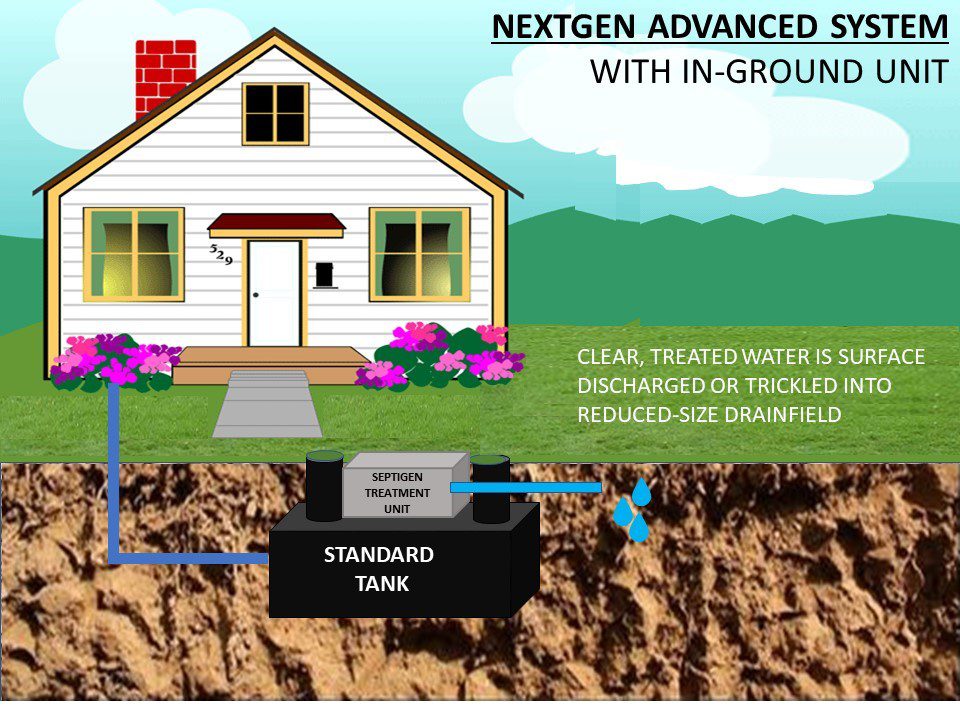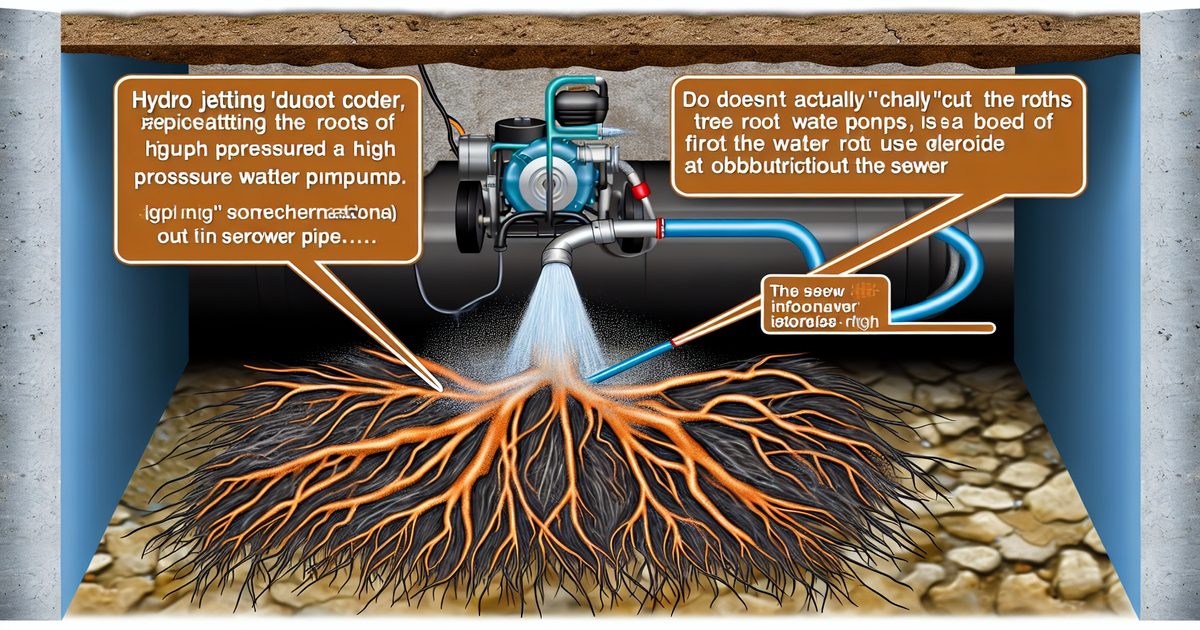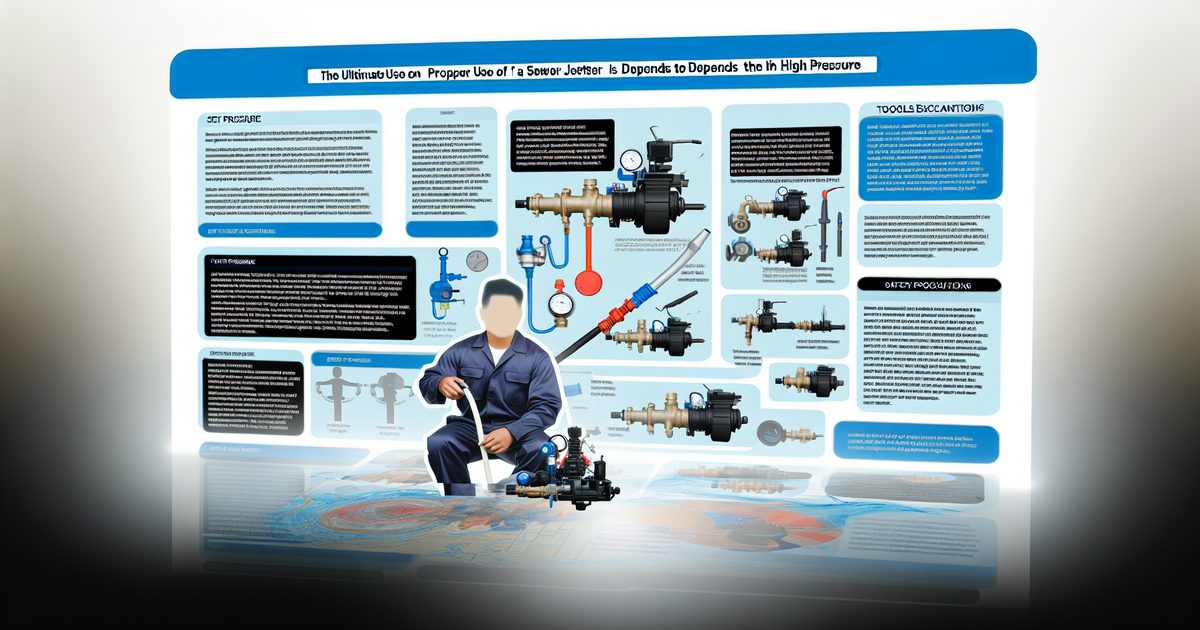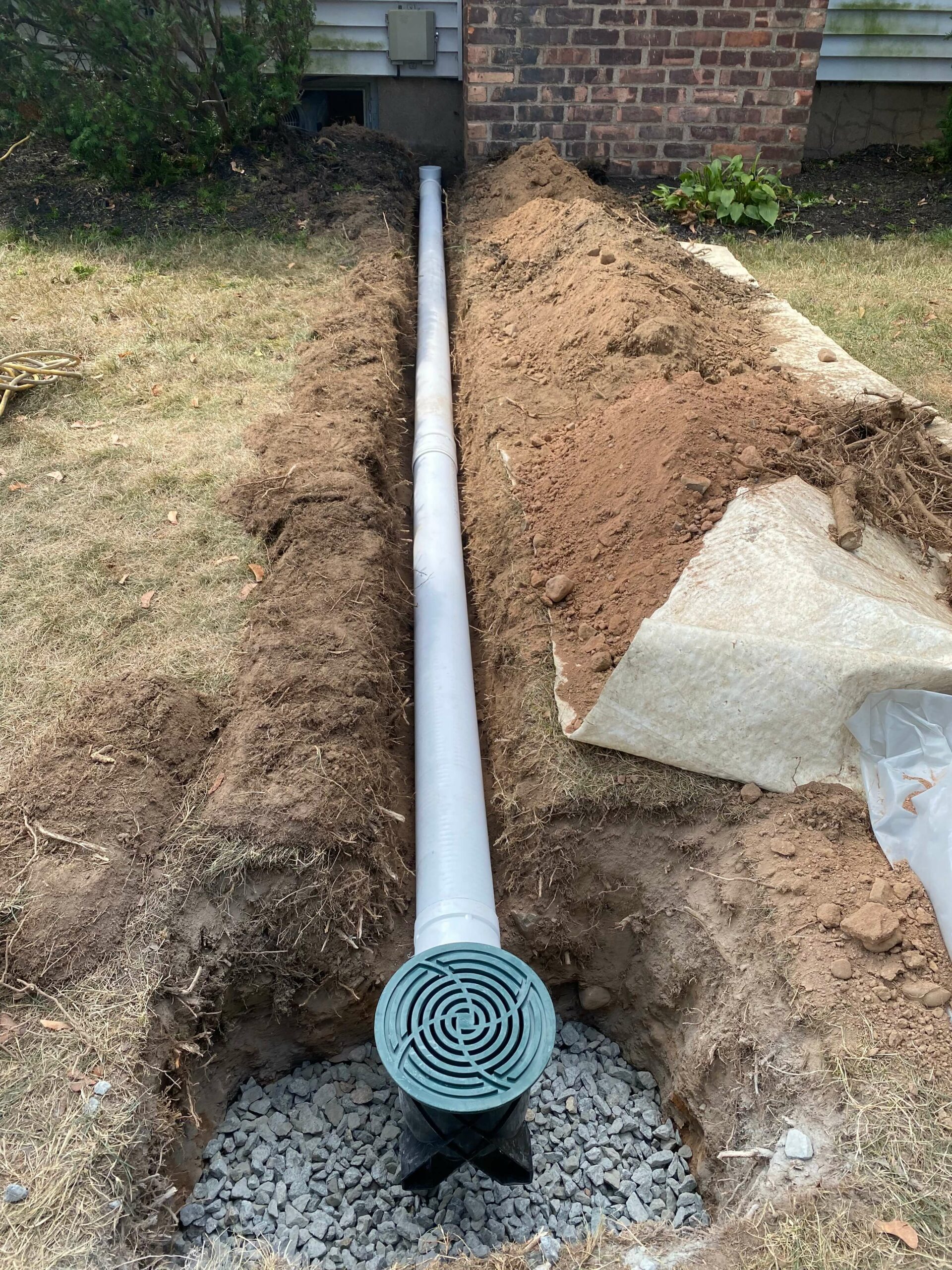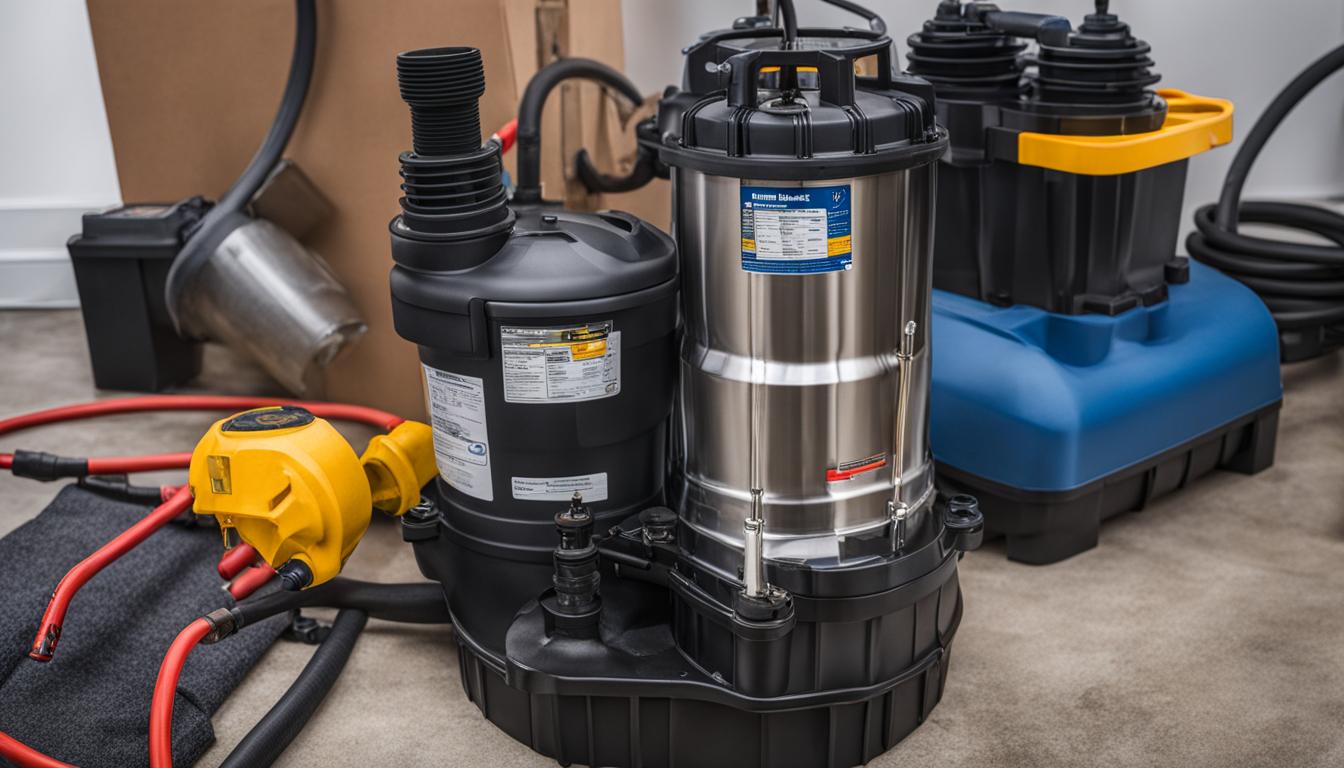The best alternative septic system is a modern anaerobic treatment system with efficient filtration and disposal processes. It offers a more environmentally-friendly and cost-effective solution compared to traditional septic systems.
In today’s world, finding an alternative septic system that is both efficient and eco-friendly is crucial. The traditional septic systems are often associated with issues such as groundwater contamination, odor problems, and high maintenance costs. This is where the best alternative septic system comes into play.
It utilizes modern anaerobic treatment technology, which efficiently breaks down and treats waste materials. Additionally, it incorporates advanced filtration and disposal processes to ensure the safe and environmentally-friendly discharge of effluent. Not only does this alternative septic system alleviate the concerns of groundwater contamination, but it also reduces odor problems and lowers maintenance costs. With its numerous benefits, it is no wonder why many homeowners are opting for the best alternative septic system.
The Drawbacks Of Traditional Septic Systems
Traditional septic systems can have severe negative impacts on both the environment and ecosystems. One of the main concerns is the pollution of natural water sources. When septic systems are not properly maintained or malfunction, they can release harmful contaminants into the surrounding soil and water supply. These contaminants include bacteria, viruses, and chemicals that can contaminate groundwater and nearby lakes, rivers, and streams.
This pollution can have a detrimental effect on the delicate balance of ecosystems. The introduction of excess nutrients from wastewater can lead to algae blooms, which deplete oxygen levels in water bodies, suffocating fish and other aquatic life. This disruption can have far-reaching consequences as wildlife populations decline and biodiversity is threatened.
Greywater Recycling Systems
Greywater recycling systems are eco-friendly and efficient options for managing wastewater. These systems collect and treat used water from sources such as sinks, showers, and washing machines. By filtering and purifying the greywater, these systems enable reuse for purposes like irrigation, toilet flushing, and even laundry.
Greywater recycling systems aim to reduce water consumption and promote sustainability. The treated water can be used in non-potable applications, reducing the demand for freshwater resources. This helps conserve water and lowers utility bills, making it an economically viable option as well. Additionally, greywater recycling systems contribute to the overall health of the environment by minimizing the strain on sewer systems and preventing pollution.
| Type | Key Features | Advantages |
|---|---|---|
| Plant-based systems | – Utilize plants to filter and cleanse the greywater – Enhance landscaping aesthetics |
– Natural and cost-effective – Promote plant growth |
| Filtration systems | – Employ filters to remove contaminants from greywater – Compact and easy to install |
– Efficient at removing solids and odors – Suitable for smaller spaces |
| Treatment systems | – Utilize advanced technologies like ultraviolet disinfection – Ensure high-quality recycled water |
– Suitable for commercial or large-scale applications – Provides safe water for various purposes |
Investing in a greywater recycling system not only helps the environment but also offers long-term benefits for homeowners and businesses alike. As sustainable practices gain importance, embracing alternatives like greywater recycling systems becomes crucial for a greener future.
Composting Toilets
Composting toilets are an excellent alternative septic system that offers numerous advantages and benefits. These toilets use the natural process of decomposition to break down waste into compost, which can then be safely used as fertilizer. They are a popular choice for environmentally-conscious individuals and those living off the grid.
There are different types of composting toilets available, each with its own unique features and benefits. Some common types include self-contained systems, centralized systems, and dry-flush systems. These toilets are designed to be odorless, and many models also have additional features like built-in fans for better ventilation.
Composting toilets offer several environmental advantages. Firstly, they conserve water by eliminating the need for traditional flush systems. Additionally, they reduce the strain on sewage treatment plants and help prevent pollution of water sources. Composting toilets also contribute to the reduction of greenhouse gas emissions, as waste is converted into compost rather than releasing methane in landfills.
When considering an alternative septic system, composting toilets are a sustainable and eco-friendly option that offer both practical and environmental benefits.
Aerobic Treatment Units (atus)
Aerobic treatment units (ATUs) are considered one of the best alternative septic system options available today. They offer a more advanced and efficient method of wastewater treatment compared to traditional septic systems.
ATUs have several key features and benefits. Firstly, they utilize oxygen to facilitate the breakdown of organic matter, resulting in a more thorough treatment process. This helps in reducing the levels of harmful pathogens and contaminants in the wastewater.
The functioning of ATUs involves a series of processes. The wastewater is initially treated by mechanical filtration to remove larger solids. Then, it is transferred to an aeration chamber where microorganisms break down the remaining organic matter. Finally, the treated water is disinfected and can be safely discharged into the environment.
When comparing ATUs with traditional septic systems, ATUs are known for their superior treatment capabilities, increased lifespan, and reduced environmental impact. They require regular maintenance to ensure optimal performance and longevity.
Local Regulations And Requirements
Understanding local laws and regulations is crucial when it comes to alternative septic systems. Each area may have different requirements and permits needed for installation and operation. Before proceeding with any system, it is important to research and familiarize yourself with the local regulations.
Ensure you check if there are any specific permits and licensing considerations that you need to comply with. This may include obtaining permits from the local health department or septic system office. These permits typically involve inspections and approvals of the system design and installation.
By following the local regulations and obtaining the necessary permits and licenses, you can ensure that your alternative septic system is in compliance with the guidelines set by the authorities. This not only keeps you within the legal boundaries but also helps in safeguarding the environment and maintaining the proper functioning of the system.
Cost And Installation
The cost and installation of alternative septic systems can vary depending on several factors. These factors influence both the initial installation cost and the overall expenses in the long run.
| Factor | Effect on Cost |
|---|---|
| Soil Conditions | Difficult soil conditions may require additional site preparation or special equipment, increasing the cost of installation. |
| System Size | Larger systems typically require more materials and labor, leading to higher installation costs. |
| Regulatory Requirements | Compliance with specific regulations and permitting processes can add to the cost of installation. |
| Location | The accessibility of the installation site can affect transportation and logistical costs. |
Alternative septic systems have different installation requirements compared to conventional systems. Some may need additional components like pumps or tanks, while others may require specific maintenance procedures. It’s crucial to carefully evaluate these requirements to ensure a successful installation and efficient operation of the system.
Maintenance And Durability
When considering alternative septic systems, it is essential to evaluate their maintenance needs and associated costs. These systems vary in terms of their complexity and requirements, so it is crucial to understand the specific needs of each option before making a decision. Regular maintenance is essential to ensure the proper functioning and longevity of the system, preventing costly repairs and replacements in the long run. Some alternative septic systems may require more frequent inspection and maintenance compared to traditional systems, while others may have lower maintenance requirements.
Understanding the maintenance needs will help homeowners plan and budget accordingly. Costs associated with maintenance can include routine inspections, pumping, filter replacement, and any necessary repairs. It is advisable to consult with professionals and obtain accurate estimates for ongoing maintenance expenses for different alternative septic systems to make an informed decision that aligns with both budgetary considerations and long-term sustainability goals.
Residential Applications
Examples of eco-friendly septic systems in residential settings include alternative septic systems that promote sustainable waste disposal. These systems are designed to minimize environmental impact and enhance efficiency.
One such system is the aerobic treatment unit (ATU) that utilizes aerobic bacteria to break down waste. This system is highly effective at removing pathogens and reducing nutrient levels, resulting in cleaner effluent. Another alternative is the constructed wetland system, which uses natural processes to treat and purify wastewater.
Residential users have shared many testimonials and success stories attesting to the benefits of these alternative septic systems. They have praised the superior treatment results, reduced maintenance requirements, and lower environmental impact. Users have also commended the cost-effectiveness and long-term savings associated with these systems.
In summary, eco-friendly septic systems are gaining popularity among residential users due to their sustainability, efficiency, and positive impact on the environment. With their success stories and testimonials, it is evident that alternative septic systems are a viable option for those seeking a best alternative septic system.
Commercial Applications
Commercial settings require efficient and reliable alternative septic systems to ensure smooth operations. Innovative alternative septic systems offer numerous benefits for businesses and commercial establishments:
- Cost-effective: Alternative septic systems are designed to minimize maintenance and operating costs, providing long-term cost savings.
- Environmentally friendly: These systems employ advanced technology to treat wastewater effectively, minimizing environmental impact.
- Space-saving: Some alternative septic systems are compact and can be installed in areas with limited space, making them ideal for commercial properties.
- Flexibility: These systems can be customized to meet the specific needs of commercial applications, ensuring optimal efficiency.
- Compliance: Many alternative septic systems comply with strict regulatory standards, ensuring businesses meet legal requirements.
- Reliability: These systems offer dependable performance, reducing the risk of disruptive issues and costly downtime.
Investing in an alternative septic system is a smart choice for businesses and commercial establishments, providing a range of benefits that contribute to a healthier and more sustainable environment.

Credit: www.amazon.com
Frequently Asked Questions On Best Alternative Septic System
What Is The Best Alternative To A Septic Tank?
A good alternative to a septic tank is a decentralized wastewater treatment system. It separates sewage into liquid and solid waste, and treats it using natural processes. These systems are environmentally friendly, cost-effective, and require less maintenance. They are a great option for areas without access to a centralized sewage system.
What Is The Modern Alternative To A Septic Tank?
The modern alternative to a septic tank is a decentralized wastewater treatment system. It provides effective and eco-friendly wastewater treatment without the need for a traditional septic tank. These systems use advanced technology to treat and disinfect wastewater before safely releasing it back into the environment.
What Is The Most Effective Septic System?
The most effective septic system depends on various factors such as soil type and household size. Aerobic septic systems are known to be efficient and environmentally friendly, while conventional systems are suitable for most homes. It’s crucial to consult an expert to determine the best option for your specific needs.
What Is The Cheapest Septic Option?
The most cost-effective septic option is a conventional gravity septic system. It’s the cheapest choice for homeowners who have suitable soil and enough space on their property. Proper maintenance and regular inspections can help prolong its lifespan and save money in the long run.
Conclusion
To sum up, when it comes to finding the best alternative septic system for your needs, it is important to consider factors such as affordability, sustainability, and effectiveness. By opting for a system that utilizes innovative technologies and eco-friendly practices, you can ensure proper waste management while minimizing negative impacts on the environment.
Take the time to research and consult with experts to make an informed decision for a reliable and responsible solution.
